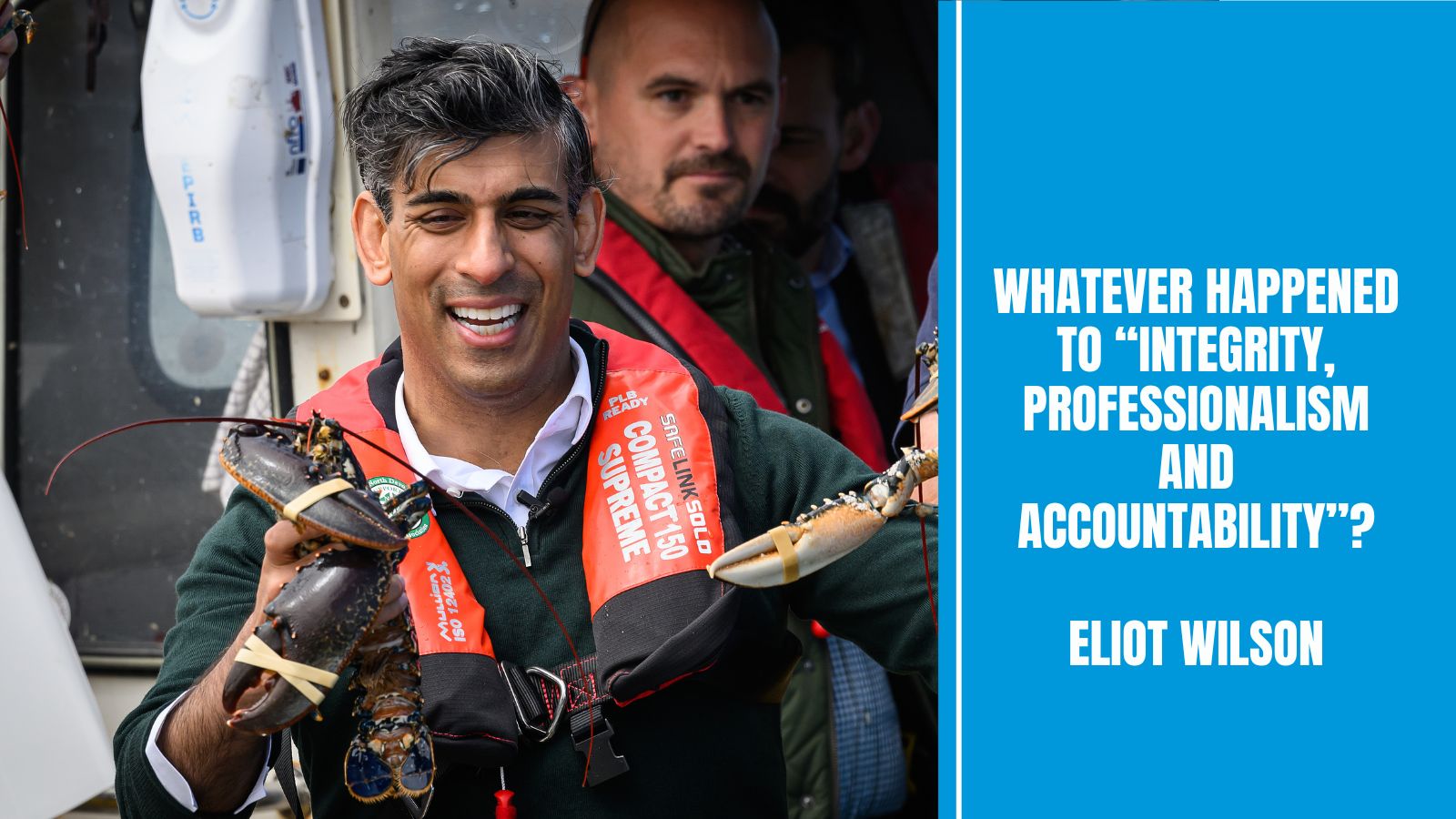Betting scandal: Whatever happened to “integrity, professionalism and accountability”?
News that four close associates of the Prime Minister are being investigated for betting on the election suggests the Conservative party is taking an increasingly casual approach to basic propriety, says Eliot Wilson It started with an embarrassing story. Craig Williams, a Welsh MP who has been the Prime Minister’s parliamentary aide since 2022, was [...]


News that four close associates of the Prime Minister are being investigated for betting on the election suggests the Conservative party is taking an increasingly casual approach to basic propriety, says Eliot Wilson
It started with an embarrassing story. Craig Williams, a Welsh MP who has been the Prime Minister’s parliamentary aide since 2022, was revealed to have placed a bet of £100 on a July general election three days before Rishi Sunak took Westminster by surprise and announced just such a poll. Williams held up his hands to “a huge error of judgement” and is being investigated by the Gambling Commission for potential misuse of confidential information.
This was a setback for the Prime Minister but in an election campaign littered with unforced errors and unforeseen problems it did not stand out. Last week, however, it was announced that one of the police officers in Sunak’s close protection team had been arrested on suspicion of misconduct in public office, after the Gambling Commission informed the Metropolitan Police it was looking at further allegations of betting irregularities.
The same day, Laura Saunders, the Conservative candidate for Bristol North West, was also revealed to be under investigation. Within 24 hours, it further transpired that her husband, Tony Lee, faced similar allegations and had taken leave of absence from his job – as director of campaigning for the Conservative Party.
Nothing has been proven against any of these four people. None, however, has denied placing bets connected to the general election – and that, as a first charge, is extraordinary recklessness. Seeking to make money, even a relatively small sum, from an event with which you are closely involved is simply stupid: the suspicion of inside knowledge is inevitable and damaging. What makes it more idiotic is that it is a trap so easy to avoid, through the simple expedient of not betting on your work.
That recklessness, displayed by several people close to the centre of power, suggests a broader malaise, combining a lack of strong ethical leadership and a lazy indifference to potential political embarrassment. One of the most damning criticisms of Boris Johnson’s tenure in Downing Street, which was illustrated by the “Partygate” scandal but extended further than that, was a casual, laissez-faire approach to basic propriety. It spoke of arrogance, indifference to rules and a sense of entitlement.
Rishi Sunak became Prime Minister in October 2022 promising “integrity, professionalism and accountability”, in a clear signal that things would change. He had been defeated by Liz Truss in that summer’s leadership election but was unchallenged as her successor when she resigned after 49 days in office, and this was, it seemed, a line in the sand. That line looks to have been washed away by the tide of events.
None of this is to suggest that the Prime Minister is personally corrupt. He does not, in all honesty, give the appearance of a man with Paddypower login details saved on his smartphone. But in politics, as in business, the leader must set a tone, by word and deed, which guides everyone in the organisation. That Rishi Sunak has not done so may not be for want of trying. Perhaps more depressingly, it may simply be that no-one is paying attention. A sense of impunity ultimately stems from inadequate leadership.
Everything happens in a wider context. A few unwise, even knowingly corrupt, individuals are a matter of regret and should be dealt with appropriately by the law. This scandal, however, which has gradually vomited itself on to the public consciousness over days and weeks, comes at a time when public trust in politicians and politics in general is at an historic low. The vast majority of the electorate assume that politicians will lie and deceive and conceal the truth. Voters are coming to believe that our institutions just do not work, and the relative popularity of Nigel Farage, the acme of simplistic, mendacious populism, shows how readily they will give a hearing to anyone who seems like an outsider.
As governments come to the end of their lives, there is often a sense of internal collapse. It happened to the Conservatives in the early 1960s and mid-1990s, and to the Labour Party under Gordon Brown. It seems to be happening again. This time, though, the stakes have never been higher. Po-faced declarations that “it would be inappropriate to say anything further” are inadequate now.
Rishi Sunak is still Prime Minister: he needs to make it clear beyond contradiction that ethical lapses are serious and unacceptable. As he negotiates his way between opinion polls that range from merely catastrophic to existentially cataclysmic, he should take the opportunity of these remaining 10 days to show the kind of rigour and standards he promised when he first crossed the threshold of Downing Street.
Eliot Wilson is co-founder of Pivot Point Group



